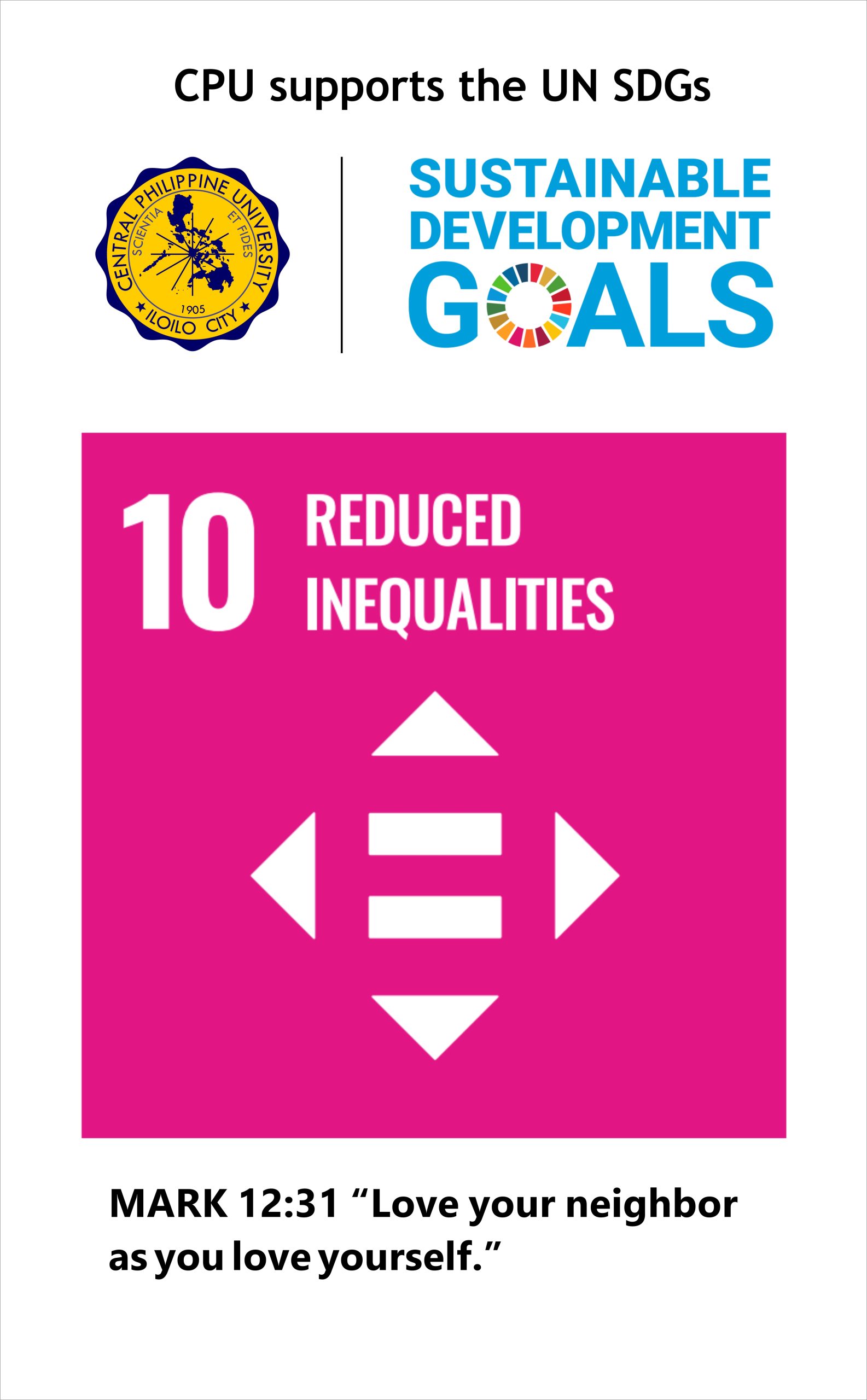“Reduced Inequalities” – Seeds of Faith – August 12, 2024
Today, we continue our 17-part Seeds of Faith series on the Sustainable Development Goals (SDGs) of the United Nations, proudly supported by Central Philippine University. Our focus today is on the tenth goal: Reduced Inequalities. Our guiding scripture is Mark 12:31, which says, “The second is this: ‘Love your neighbor as yourself.’ There is no commandment greater than these.”
First, recognize that everyone is made in the image of God.
Mark 12:31 calls us to love our neighbor as ourselves, which begins with recognizing the inherent dignity and worth of every person. Inequality often stems from failing to see others as equals, leading to discrimination, exclusion, and injustice. As Christians, we are called to recognize that every person is made in the image of God and is deserving of respect, fairness, and opportunity.
We must consciously recognize the ways in which inequality manifests in our communities and the world. This includes economic disparities, racial and gender discrimination, and unequal access to education, healthcare, and opportunities. By acknowledging these realities, we position ourselves to take meaningful action in addressing them. Recognition is the first step toward creating a more just and equitable society.
Second, act to eliminate injustice.
The command of Jesus to love our neighbor compels us to move beyond recognition to action. It is not enough to see the inequalities around us; we must be active in eliminating them. This involves challenging systems and practices that perpetuate injustice and advocating for policies that promote fairness and inclusion.
As a church and as individuals, we are called to act by supporting initiatives that reduce inequalities, such as providing resources to marginalized communities, supporting equitable education and healthcare, and advocating for the rights of those who are oppressed. Central Philippine University’s commitment to social responsibility can be seen in its efforts to foster an inclusive environment where every person is valued and given equal opportunities. We, too, must be proactive in our efforts to bring about change, using our voices, resources, and influence to create a more just world.
Third, empower others to overcome barriers.
To truly love our neighbor as ourselves, we must empower those who are facing barriers to success and well-being. Empowerment means equipping individuals and communities with the tools, knowledge, and opportunities they need to overcome the challenges of inequality. It is about lifting others up so that they can reach their full potential.
The Church can play a significant role in empowerment by providing education, mentoring, and support to those in need. We can partner with organizations that focus on reducing inequalities and create programs that address the specific needs of our community. Empowerment also means advocating for systemic changes that provide equal opportunities for all, ensuring that everyone has a fair chance to succeed.
As we reflect on Mark 12:31 and the goal of Reduced Inequalities, let us commit to recognizing the dignity in every person, acting to eliminate injustice, and empowering others to overcome barriers.

